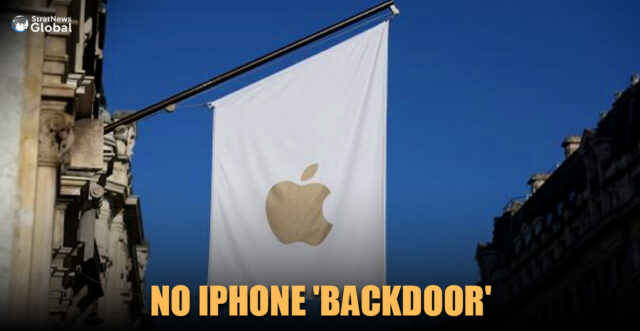On Monday, U.S. Director of National Intelligence Tulsi Gabbard announced that the United Kingdom had withdrawn its mandate requiring Apple to create a “backdoor” into iPhones, a measure that would have granted access to the encrypted data of American citizens.
Gabbard issued the statement on X, saying she had worked for months with Britain, along with President Donald Trump and Vice President JD Vance to arrive at a deal.
British Prime Minister Keir Starmer was in Washington on Monday along with other European leaders to meet Trump and discuss Russia’s war in Ukraine.
The UK government and Apple did not immediately respond to requests for comment on Gabbard’s statement.
U.S. lawmakers said in May that the UK’s order to Apple to create a backdoor to its encrypted user data could be exploited by cybercriminals and authoritarian governments.
Apple, which has said it would never build such access into its encrypted services or devices, had challenged the order at the UK’s Investigatory Powers Tribunal (IPT).
Bilateral Agreement
The iPhone maker withdrew its Advanced Data Protection feature for UK users in February following the UK order. Users of Apple’s iPhones, Macs and other devices can enable the feature to ensure that only they — and not even Apple — can unlock data stored on its cloud.
U.S. officials said earlier this year they were examining whether the UK broke a bilateral agreement by demanding that Apple build a backdoor allowing the British government to access backups of data in the company’s encrypted cloud storage systems.
In a letter dated February 25 to U.S. lawmakers, Gabbard said the U.S. was examining whether the UK government had violated the CLOUD Act, which bars it from issuing demands for the data of U.S. citizens and vice versa.
Cybersecurity experts said that if Apple chose to build a backdoor for a government, that backdoor would eventually be found and exploited by hackers.
Apple has sparred with regulators over encryption as far back as 2016 when the U.S. government tried to compel it to build a tool to unlock the iPhone of a suspected extremist.
(With inputs from Reuters)





